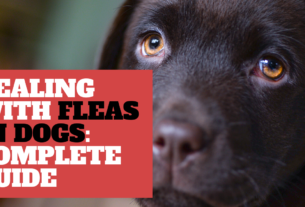Canine distemper, a highly contagious viral disease, poses a significant threat to our furry companions. This article delves into the intricacies of this ailment, providing essential information on its symptoms, causes, diagnosis, treatment, and prevention. Let’s explore this distressing canine disease and learn how to protect our four-legged friends.
Understanding Canine Distemper
Canine distemper, scientifically known as Canine morbillivirus, primarily affects dogs but can also afflict other animals like raccoons, foxes, and wolves. This virus targets the respiratory, gastrointestinal, and nervous systems, making it a formidable adversary in the animal kingdom.
Symptoms of Canine Distemper
The symptoms of canine distemper are varied, often resembling other illnesses. Dogs infected with the virus may exhibit signs such as fever, nasal discharge, coughing, lethargy, loss of appetite, and even neurological issues. The disease’s progression can vary, and severe cases may lead to seizures and death.
Causes of Canine Distemper
Canine distemper spreads through contact with an infected animal’s bodily fluids or secretions. It can also be transmitted through the air, making it highly contagious. Puppies and unvaccinated dogs are particularly vulnerable.
Diagnosing Canine Distemper
Diagnosing canine distemper typically involves a combination of clinical signs, blood tests, and serological tests. Veterinarians use these methods to determine the presence of the virus and tailor treatment accordingly.
Treatment Options
Unfortunately, there is no specific antiviral treatment for canine distemper. However, supportive care, including fluid therapy, antibiotics for secondary infections, and anti-seizure medication, can help manage the disease’s symptoms.
Prevention and Vaccination
Prevention is key to combating canine distemper. Timely vaccination is the most effective way to safeguard your dog. Puppies should receive their first vaccine at around 6-8 weeks of age, followed by booster shots.
Importance of Quarantine
Isolation is crucial if your dog contracts distemper to prevent the spread of the virus. Keep infected dogs away from healthy ones, and practice good hygiene to minimize the risk of transmission.
Canine Distemper in Puppies
Puppies are particularly susceptible to distemper due to their developing immune systems. Responsible breeders and pet owners should prioritize vaccination to protect these vulnerable young dogs.
The Impact on Wildlife
Canine distemper isn’t just a concern for domestic pets; it also affects wildlife. Wild animals like raccoons, foxes, and wolves can contract the virus, leading to population declines.
Canine Distemper vs. Rabies
It’s important to distinguish between canine distemper and rabies, two different viral diseases. While both affect the nervous system, the causes and outcomes of these illnesses differ significantly.
Spreading Awareness
Raising awareness about canine distemper is vital. By educating pet owners about the disease’s signs, prevention, and treatment, we can reduce its impact on dogs and wildlife.
Supportive Care for Infected Dogs
For dogs already infected with distemper, supportive care plays a crucial role. This may involve providing a comfortable environment, nutritional support, and medications to alleviate symptoms.
A Glimpse into Research and Development
Ongoing research into canine distemper is essential for discovering new treatment methods and improving vaccination protocols. Supporting research initiatives is crucial for the future health of our pets.
Conclusion
Canine distemper is a serious disease that affects dogs and wildlife alike. Responsible pet ownership, including vaccination and quarantine, is our best defense against this highly contagious virus. By staying informed and spreading awareness, we can protect our beloved four-legged companions from this devastating illness.
FAQs
- Can humans contract canine distemper? Thankfully, no. Canine distemper is a species-specific virus and does not infect humans.
- Are all dogs at risk of contracting distemper? While all dogs are at risk, puppies and unvaccinated dogs are more vulnerable. Timely vaccination is crucial.
- Is there a cure for canine distemper? Unfortunately, there is no specific cure, but supportive care can help manage the disease’s symptoms.
- What are the long-term effects of distemper in dogs? Dogs that recover from distemper may experience long-term effects, including neurological issues and weakened immune systems.
- Can wild animals with distemper recover like domestic dogs? Some wild animals may recover, but many succumb to the disease, leading to population declines in certain species.




